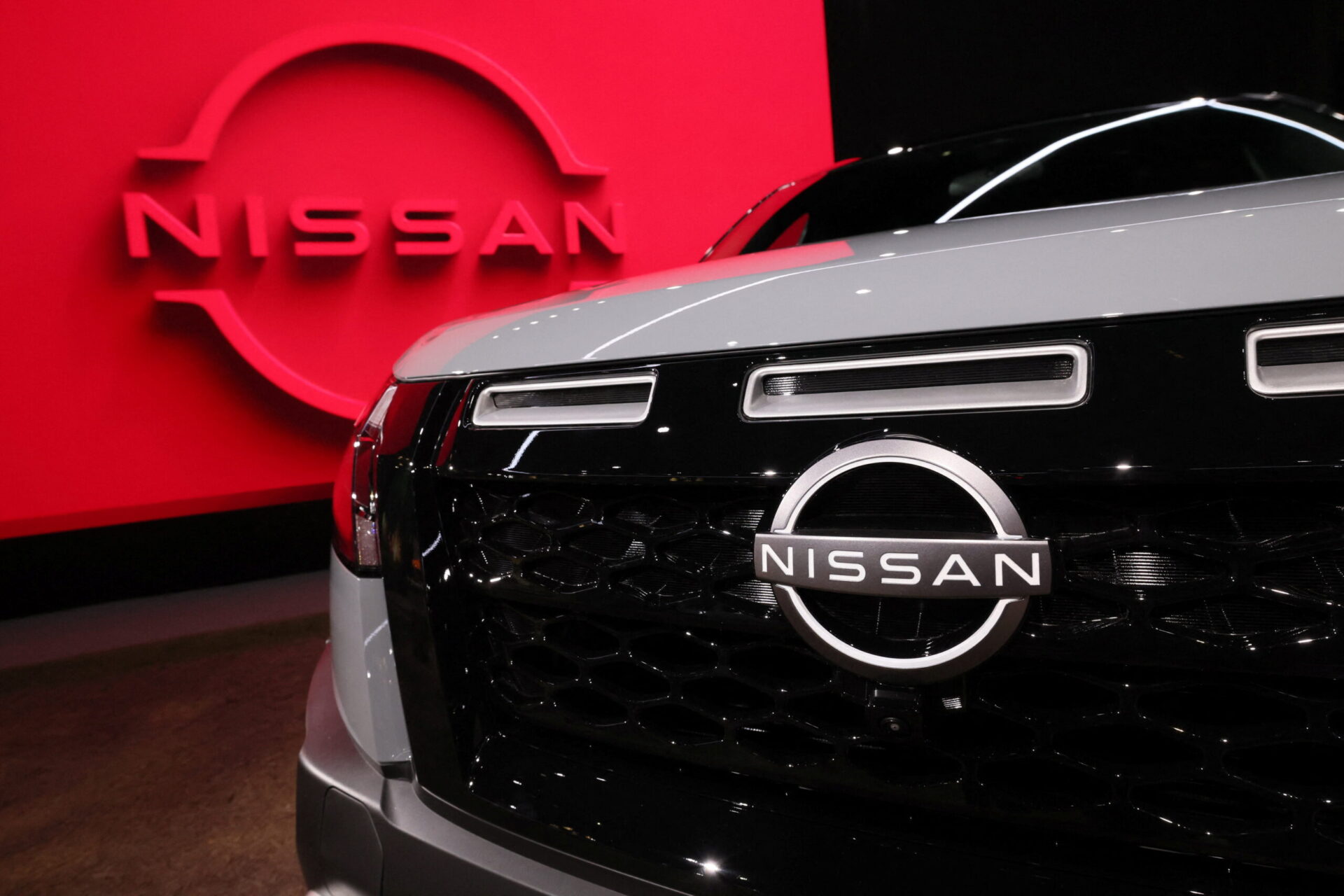Founded in December 1933 in Japan, Nissan Motor Co., Ltd. is a multinational automobile manufacturer headquartered in Yokohama. It started as a successor to DAT Motors, which had been established just two years prior in Osaka by Datsun co-founder Kenjiro Den (also known as Den Kenjirō).
From its inception in 1933 as the Nissan Motor Company, the brand embarked on a journey of innovation that would reshape the automotive landscape. Nissan’s commitment to pushing boundaries and challenging the status quo has resulted in groundbreaking advancements, such as the introduction of electric vehicles, autonomous driving technologies, and sustainable mobility solutions. With a vision for a more sustainable and connected future, Nissan has consistently been at the forefront of automotive innovation.
With roots dating back to 1911, the early days saw Nissan focused on engineering Type A vehicles for commercial use. After merging with another Japanese auto firm in 1966, the company set sail for Europe and America to take its cars global. By offering groundbreaking concepts such as advanced engine control technology, innovative transmissions, and electronic fuel injection systems, Nissan quickly gained recognition as both a leader in modern engineering and a trailblazer of future transportation solutions.
Nissan’s pioneering efforts in the realm of electric mobility have propelled the brand to a position of leadership. The introduction of the Nissan LEAF, the world’s first mass-market electric vehicle, revolutionized the way we perceive eco-friendly transportation. By combining zero-emission capabilities with impressive range and practicality, Nissan has played a significant role in accelerating the global adoption of electric vehicles and driving the transition towards a more sustainable future.
But the road wasn’t always smooth. With economic turmoil and the oil crisis hitting in the mid-to late ’70s, plus management shakeups, bankruptcy threats, and restructuring efforts later on, the once soaring giant stumbled. Still, Nissan persevered thanks largely to successful collaborations with French carmaker Renault in the ’90s, and then a subsequent alliance formation with fellow titan Mitsubishi Motors in 2016. Today, Nissan’s portfolio extends far beyond passenger vehicles, including everything from forklifts and industrial equipment to zero-emission electric bikes and buses. Discover more fascinating facts about the past, present, and future of Nissan in our detailed feature ahead.
History of Nissan Motors
Nissan has etched its mark on the global stage over the course of its rich and eventful history. From its humble beginnings as a local Japanese automaker to its current position as a global powerhouse, Nissan has demonstrated a relentless commitment to innovation, technological advancements, and a vision for the future of mobility. In this article, we delve into the comprehensive history of Nissan, tracing its transformative journey and highlighting the key milestones that have shaped its legacy.
Foundation and Early Years (1933-1945):
Nissan’s roots can be traced back to the establishment of the Nissan Motor Company in 1933. The company emerged from the merger of two Japanese automobile manufacturers, Kwaishinsha Motorcar Works and Jitsuyo Jidosha Seizo Co. Led by Yoshisuke Aikawa, Nissan initially focused on producing small passenger cars for the Japanese market. The company’s first car, the Datsun Type 12, rolled off the assembly line in 1934.
Post-War Expansion and Global Ambitions (1946-1970):
In the aftermath of World War II, Nissan faced significant challenges but remained resilient. The company embarked on a path of expansion, introducing innovative models such as the compact Datsun Bluebird in 1957. Nissan’s commitment to quality and reliability led to increased exports, especially to the United States. By the late 1960s, Nissan had firmly established itself as a global player, with a range of successful models like the Datsun Fairlady Roadster and the iconic Datsun 240Z sports car.
Technological Innovations and Global Expansion (1970-1999):
The 1970s marked a period of remarkable technological advancements for Nissan. The company introduced groundbreaking technologies such as the world’s first electronic fuel injection system and the patented Nissan Direct Ignition System. These innovations not only enhanced performance but also solidified Nissan’s reputation as a technological leader. During this time, Nissan expanded its global presence by establishing manufacturing plants and forging strategic partnerships worldwide.
Alliance with Renault and Revitalization (1999-Present):
In 1999, Nissan faced a significant financial crisis and entered into a strategic alliance with French automaker Renault. Under the leadership of Carlos Ghosn, the alliance implemented a bold revitalization plan known as the Nissan Revival Plan. This comprehensive restructuring effort focused on streamlining operations, improving product quality, and introducing a wave of new models. The plan proved highly successful, and Nissan experienced a remarkable turnaround, returning to profitability and regaining its position as a major player in the global automotive industry.
Electric Mobility Leadership and Future Vision:
Nissan’s commitment to sustainable mobility became evident with the launch of the Nissan LEAF in 2010, the world’s first mass-market electric vehicle. The LEAF showcased Nissan’s dedication to reducing carbon emissions and pioneering electric mobility solutions. Building on this success, Nissan continues to invest in electric vehicle technology, autonomous driving capabilities, and connected mobility systems. The company’s vision extends beyond individual vehicles, aiming to create a comprehensive ecosystem of smart mobility solutions that redefine the way we move and interact with transportation.
The history of Nissan is a testament to the brand’s unwavering pursuit of innovation, global expansion, and a vision for the future of mobility. From its early days as a Japanese automaker to its current position as a global powerhouse, Nissan has consistently pushed boundaries, introduced groundbreaking technologies, and delivered vehicles that inspire and captivate drivers worldwide. As the automotive industry continues to evolve, Nissan remains at the forefront, shaping the future of transportation with its commitment to electric mobility, connectivity, and sustainable solutions. With a legacy built on innovation, transformation, and global success, Nissan stands poised to lead the way into a new era of mobility.
Product Line of Nissan
Nissan boasts a diverse product line that caters to a wide range of consumer needs and preferences. With a focus on innovation, quality, and performance, Nissan offers vehicles across various segments, including sedans, SUVs, crossovers, electric vehicles, sports cars, and commercial vehicles. Let’s explore some of the key product lines offered by Nissan:
Sedans: Nissan’s sedan lineup includes the Altima, Maxima, Sentra, and Versa. The Altima is a mid-size sedan that is known for its fuel efficiency and comfortable ride. The Maxima is a full-size sedan that offers a more luxurious experience. The Sentra is a compact sedan that is a good value for the money. The Versa is a subcompact sedan that is the most affordable sedan in Nissan’s lineup.
SUVs: Nissan’s SUV lineup includes the Rogue, Pathfinder, Murano, Kicks, and Armada. The Rogue is a compact SUV that is one of the best-selling SUVs in the United States. The Pathfinder is a mid-size SUV that is known for its spacious interior and comfortable ride. The Murano is a full-size SUV that offers a stylish and luxurious experience. The Kicks is a subcompact SUV that is a good value for the money. The Armada is a full-size SUV that is the most luxurious SUV in Nissan’s lineup.
Trucks: Nissan’s truck lineup includes the Frontier and Titan. The Frontier is a mid-size pickup truck that is known for its durability and off-road capability. The Titan is a full-size pickup truck that is the most powerful and capable pickup truck in Nissan’s lineup.
Sports cars: Nissan’s sports car lineup includes the 370Z and GT-R. The 370Z is a sports car that is known for its handling and performance. The GT-R is a supercar that is one of the fastest cars in the world.
Others: Nissan also offers a variety of other vehicles, including the LEAF electric car, the NV200 van, and the Armada ESV. The LEAF is an electric car that is one of the most popular electric cars in the world. The NV200 is a van that is popular for commercial use. The Armada ESV is an extended-length version of the Armada SUV.
Nissan is a major player in the global automotive industry, and its product lines offer a wide variety of vehicles to meet the needs of different consumers. The company is committed to developing new technologies and innovative vehicles that will continue to excite and satisfy its customers.
Also Read: The Volkswagen Group: A Deep Dive into the Company’s Portfolio of Brands
To read more content like this, subscribe to our newsletter
Go to the full page to view and submit the form.

